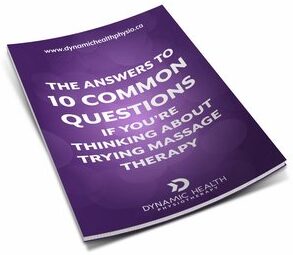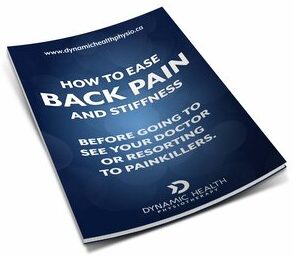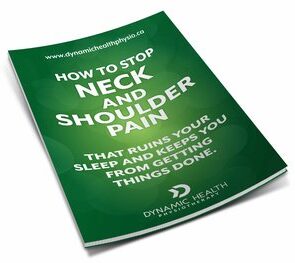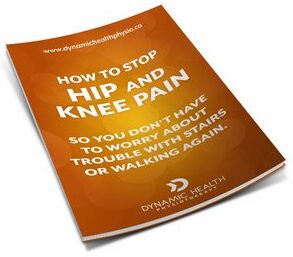- March 5, 2023
HIP PAIN 101: UNDERSTANDING THE TOP THREE CAUSES
Hip Pain 101: Understanding the Top Three Causes
Hip pain can be a frustrating and painful condition that can significantly impact your daily life. With so many potential causes of hip pain, it can be difficult to determine the underlying issue and find effective treatment. In this post, we’ll explore some of the most common causes of hip pain, provide tips for preventing hip pain in the first place, and discuss how bursitis is often misdiagnosed as the main problem.
Whether you’re currently dealing with hip pain or hoping to prevent it in the future, this post offers some valuable information and tips to help you stay informed, healthy and pain-free.

Let’s dive into three of the main causes of hip pain:
CAUSE 1: OSTEOARTHRITIS
Osteoarthritis is a degenerative joint disease that occurs when the protective cartilage on the ends of bones wears down over time. It is a common cause of hip pain, particularly as we age. The symptoms of osteoarthritis in the hip can include pain, stiffness, and reduced range of motion. Risk factors for developing osteoarthritis in the hip include age, family history, and obesity.
Treatment options for osteoarthritis in the hip can include physiotherapy, medication, and in severe cases, surgery. Physiotherapy can help improve range of motion, strengthen supporting muscles, and reduce pain, while medications such as nonsteroidal anti-inflammatory drugs (NSAIDs) can help relieve pain and inflammation. Surgery, like joint replacement, may be recommended in severe cases where other treatments have not been effective.
CAUSE 2: HIP IMPINGEMENT
Hip impingement, also known as femoroacetabular impingement (FAI), is a condition that occurs when there is abnormal contact between the femoral head (ball) and the acetabulum (socket), which can cause hip and groin pain, stiffness, and limited movement. Hip impingement can develop due to a variety of reasons, including genetics, structural differences, or previous hip injuries.
As with osteoarthritis, treatment options for hip impingement can include physiotherapy, anti-inflammatory medications, and in some cases, surgery.
CAUSE 3: STRAINS AND SPRAINS
Strains and sprains are common causes of hip pain, particularly in athletes or individuals who participate in activities that involve sudden movements or changes in direction. A strain occurs when a muscle or tendon is overstretched or torn, while a sprain occurs when a ligament is stretched or torn.
Symptoms of strains and sprains in the hip can include pain, swelling, bruising, and reduced range of motion. Risk factors for developing strains and sprains in the hip include participation in sports or activities that involve sudden movements, inadequate warm-up or stretching, and previous hip injuries.
Treatment options for strains and sprains in the hip can include rest, ice, compression, and elevation (RICE), physiotherapy, and anti-inflammatory medications. In severe cases where there is a complete tear, surgery may also be necessary.
MISDIAGNOSIS: WHY HIP PAIN IS OFTEN MISDIAGNOSED AS BURSITIS
Bursitis is a condition that occurs when the bursae, small fluid-filled sacs that cushion the joints, become inflamed. It is a common diagnosis for individuals experiencing hip pain. However, it is important to note that bursitis is often misdiagnosed, and hip pain of this type is often resulting from another condition, – likely a strain or overuse injury.
Other conditions that can mimic bursitis symptoms include tendinitis, labral tears, and stress fractures. It is essential to get a proper diagnosis from a healthcare professional to ensure effective treatment. A misdiagnosis of bursitis can lead to ineffective treatment and potentially delay the proper treatment needed for the actual underlying cause of hip pain.
If you have been diagnosed with bursitis but are not experiencing relief from treatment, it may be time to consider other potential root causes. A healthcare professional can perform further testing, such as a physical examination, to determine if there is an underlying condition causing your hip pain.
While getting to the root cause of an injury after the fact is important, it is also essential to take steps to prevent hip pain in the first place. This can include maintaining a healthy weight, participating in regular physical activity, properly warming up before activity, and stretching consistently. By taking these steps, you can reduce your risk of developing hip pain and potentially avoid the need for treatment altogether.
Hip pain can be caused by a variety of conditions, including osteoarthritis, hip impingement, strains, and sprains. It is very important to get a proper diagnosis from a healthcare professional – like a physiotherapist – to ensure effective treatment. Bursitis is a common misdiagnosis for hip pain, and it is important to look at other potential underlying conditions if treatment is not providing relief. Finally, by taking steps to prevent hip pain, you can reduce your risk of developing this condition and potentially avoid the need for treatment altogether.
If you’re dealing with hip pain of any kind, please reach out and talk to one of our physiotherapists in Fredericton today! We have free physiotherapy discovery visits, where you can speak to a member of our team, ask any questions that you have, and find out what’s stopping you from finally getting some relief.
We can also help you understand how to get your hip and lower body stronger and healthier than ever, so you are able to make the most of your day, stay active with friends and family rather than feeling stiff and sore, and even sleep better once the pain or stiffness in your hip isn’t keeping you from sleeping in your favourite position anymore.
Alternatively, you can always call us at 506-404-1565 if you prefer to talk over the telephone.

Have Questions About Massage Therapy

Need some help with your back pain?

Struggling with neck or shoulder pain?
Click the button below to claim your free copy of this neck and shoulder pain tips report!

